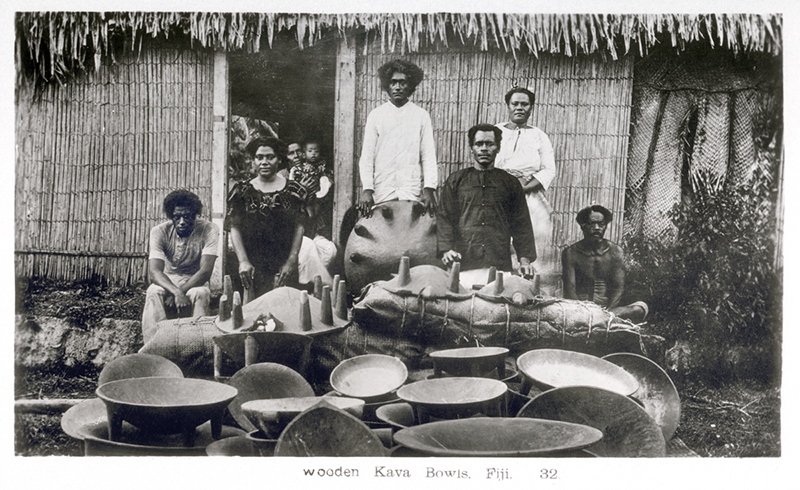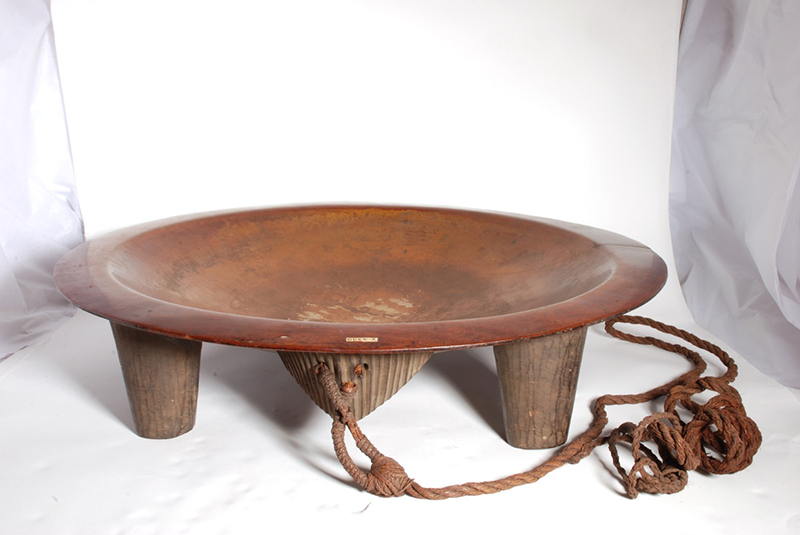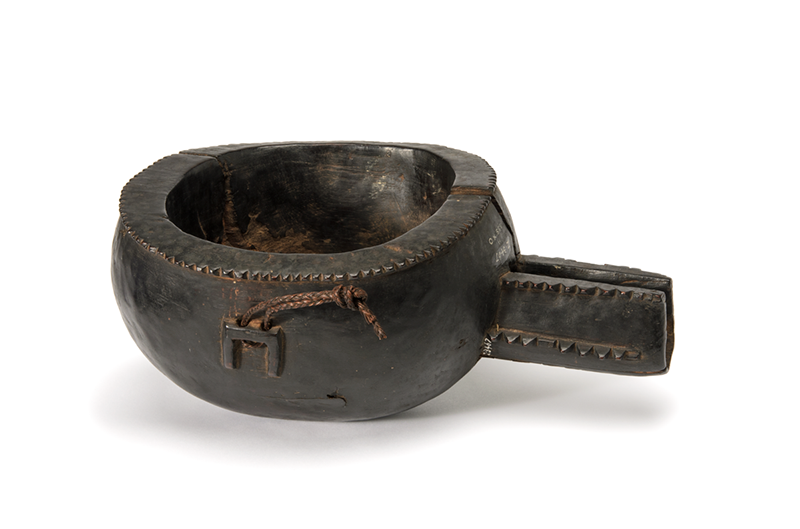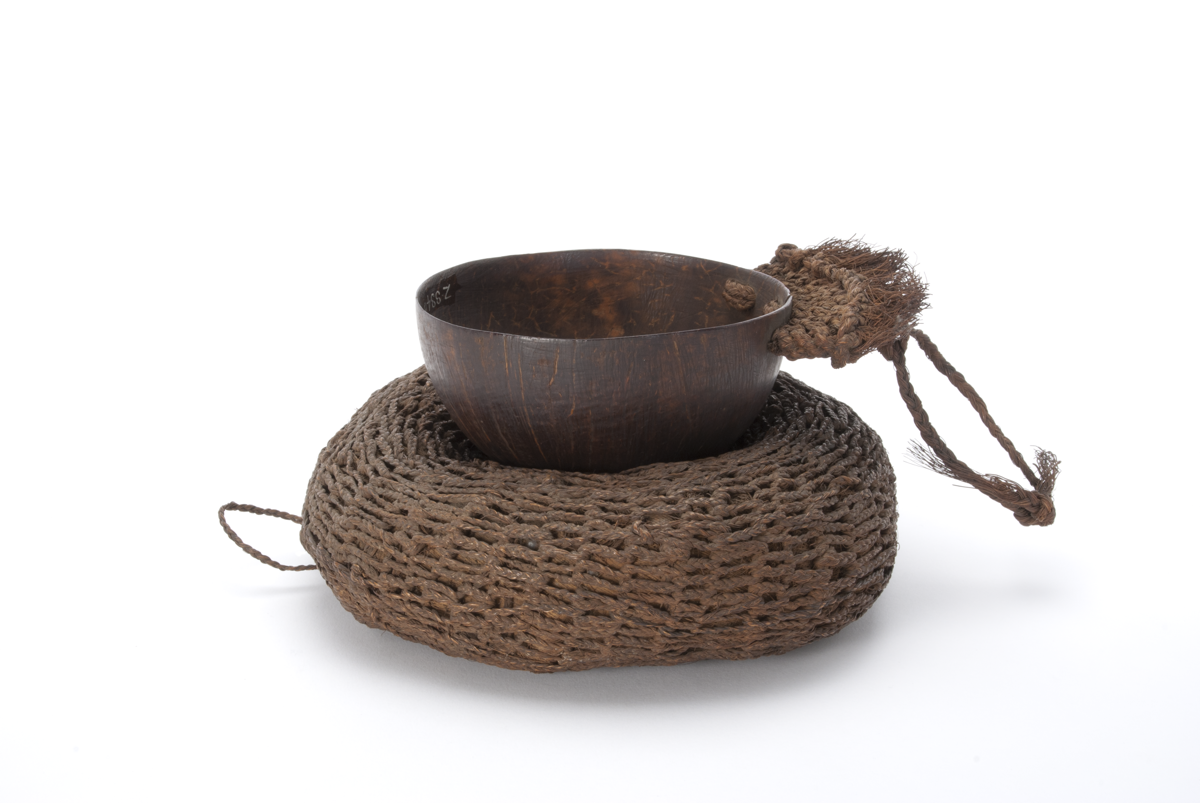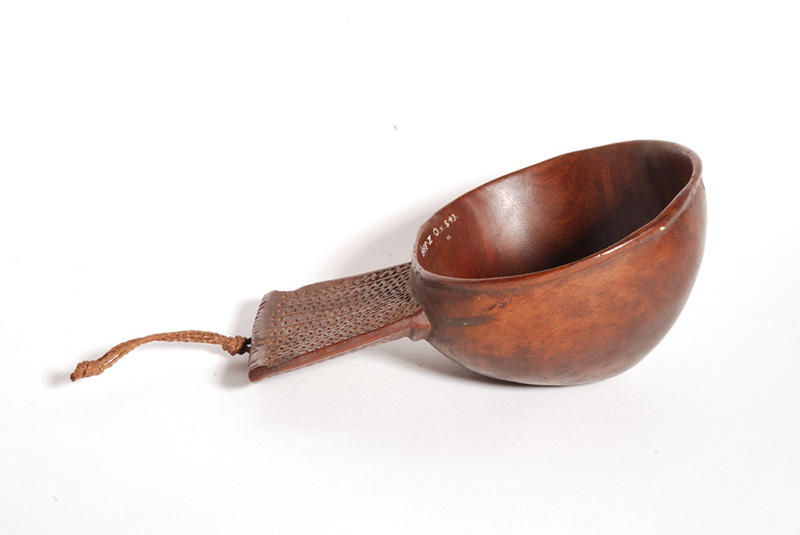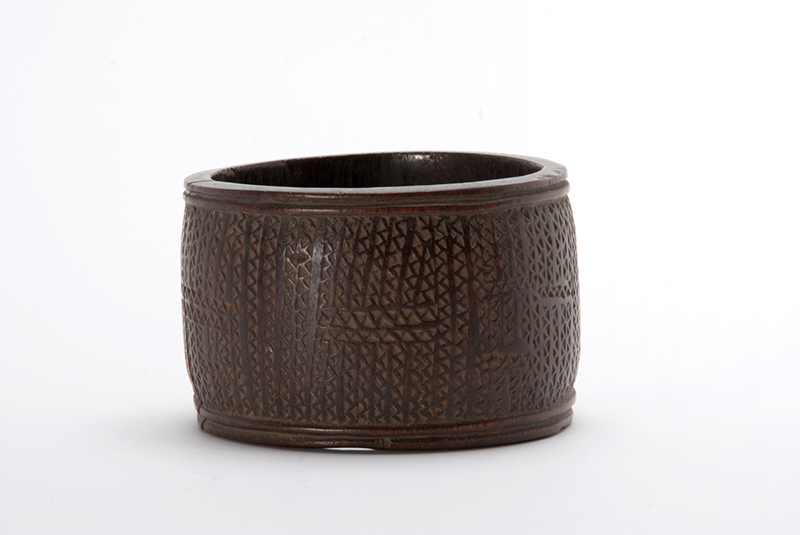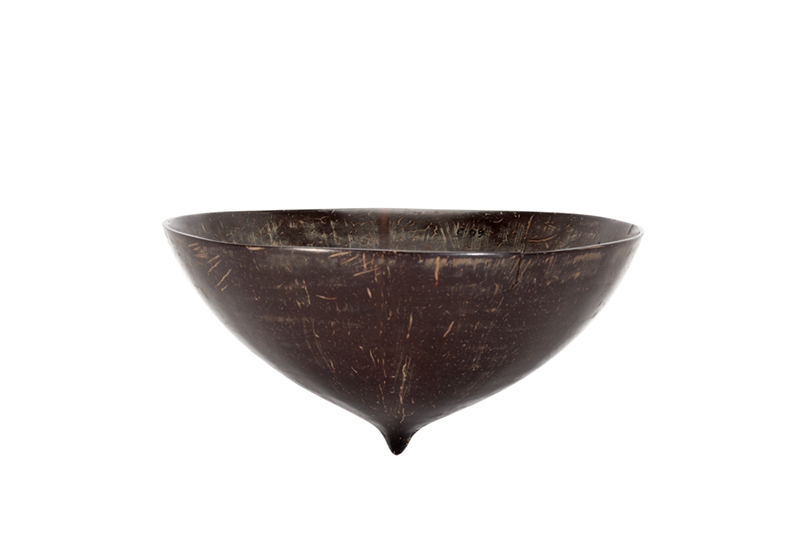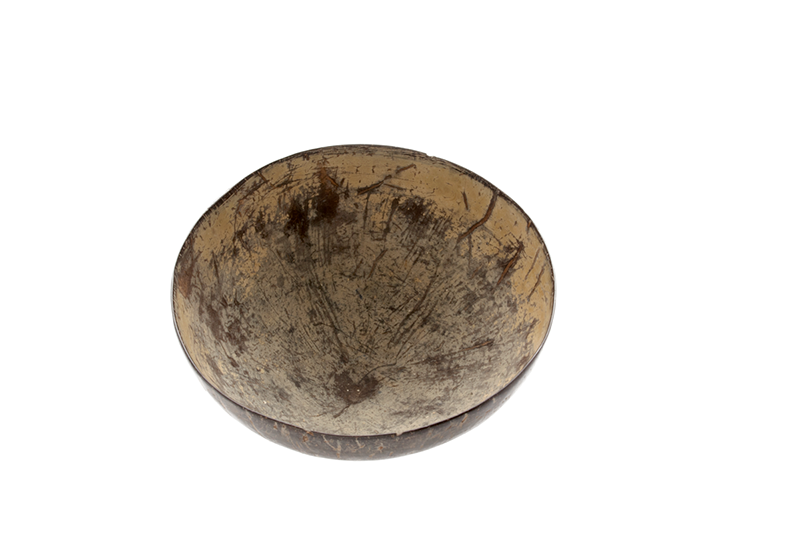Yaqona, known elsewhere in the Pacific as kava, 'awa, or 'ava is made from the root of the Piper methysticum plant. Reduced to a powder or a pulp, the roots are mixed with water in a wooden bowl (tanoa). The drink produced is consumed both in ceremonial and recreational contexts.
In the 19th century, the consumption of yaqona was reserved for chiefs and priets as part of religious rituals. Increased contacts with Tonga and Samos from the mid-18th century gradually saw the adoption of a more public and eventually recreational mode of consumption.
Today, the customary presentation of roots (isevusevu) and consumption of the yaqona in its liquid form continue to be central to Fijian culture.
Display of yaqona bowls. Bowls of various sizes and shapes manufactured for a solevu or property presentation.
Fiji. Possibly photographed by J.W. Waters, c.1900. P45532.ACH2
Yaqona equipment
In 19th-century Fiji, preparing and drinking yaqona was a complex and codified operation. A wide range of containers, strainers, cups and stands were used. The materials employed in making these objects varied according to where they were produced and used.
Use the drop down menu below to explore the objects in this section.
Large tanoa carved from a solid piece of vesi wood. A carved lug, to which a long cord of plaited and twisted coir is attached, sits under the lip. The inside shows residue of yaqona.
This strainer comes from the Viti Levu Highlands. Fern leaves were placed inside the bowl to trap impurities. The filtered liquid was poured through the spout.
Nadrau, Viti Levu, Fiji. Collected by A. von Hügel, 1875-77. Z 3467
This wooden cup imitates the shape of coconut cups with plaited coir handle. The bands of zigzags (tavatava) incised on the handle evoke the texture of plaited fibre handles.
Levuka, Ovalau Island, Fiji. Collected by A. von Hügel, 1875-77. Z 3369
Wooden stand for a yaqona strainer or drinking cup. The surface is carved with tavatava patterns evoking the texture of a plaited fibre stand.
Small yaqona drinking cup made of half a coconut shell, with a pointed end.
Large yaqona drinking cup made of half a coconut shell. The inside shows a thick light-yellow patina due to repeated yaqona deposits.
Originally from Fiji. Acquired by A. von Hügel in England, 1895. Z 3419


